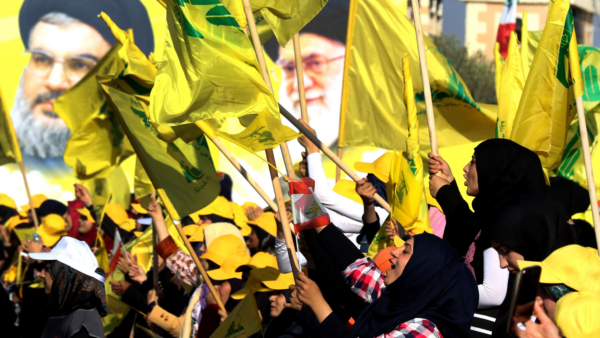Iran’s intervention into the wars in Syria, Iraq, Yemen , Lebanon and Gaza transformed the strength and scope of the so called “axis of resistance,” Tehran has secured military footholds, committed partners, and lasting influence in each theater. The US war in Iraq was won by Iran and allowed it to increase influence the whole region
Ya Libnan Editorial
Iran’s influence in the Middle East has grown significantly over the past few decades, primarily through its support of various militant groups and political factions. Iran considers Hezbollah in Lebanon as “Iran in Lebanon,” the Popular Mobilization Forces (PMF) in Iraq as “Iran in Iraq,” the Houthis in Yemen as “Iran in Yemen,” Hamas in Gaza as “Iran in Gaza,” and the Shiite militias in Syria as “Iran in Syria.” This network of proxies has allowed Iran to extend its reach and assert its presence across the region, often destabilizing countries and undermining their sovereignty.
To counter this influence peacefully, the United States must adopt a multifaceted strategy that includes diplomatic, economic, and social approaches. Here are some key points to consider:
- Strengthening Diplomatic Ties and Alliances:
- Engage with Regional Allies: Strengthen diplomatic relationships with key regional allies such as Saudi Arabia, the United Arab Emirates, and Jordan. Collaborate on shared security concerns and work towards a united front against Iranian influence.
- Support Lebanon’s Sovereignty: Lebanon, once known as the Switzerland of the Middle East, is now heavily influenced by Iran through Hezbollah. Supporting Lebanon’s sovereignty and encouraging political reforms can help reduce Hezbollah’s grip on the country.
- Facilitate Israeli-Palestinian Peace: Promoting a sustainable peace process between Israel and Palestine can weaken groups like Hamas that thrive on conflict and Iranian support.
- Economic Sanctions and Incentives:
- Targeted Sanctions: Implement and enforce targeted sanctions against Iranian leaders and entities that support militant groups. Ensure these sanctions do not harm the general population but put pressure on the regime’s ability to fund its proxies.
- Economic Incentives for Reform: Offer economic incentives and aid to countries like Iraq and Lebanon if they take steps to reduce Iranian influence and support democratic governance and economic development.
- Promoting Stability and Governance:
- Support Good Governance: Invest in initiatives that promote good governance, transparency, and anti-corruption measures in countries like Iraq, Lebanon, and Yemen. Stronger institutions can resist Iranian influence more effectively.
- Encourage National Reconciliation: Facilitate national reconciliation processes in countries affected by Iranian proxies. Bringing diverse political and ethnic groups together can create a more unified and resilient state.
- Countering Propaganda and Ideology:
- Public Diplomacy Campaigns: Launch public diplomacy campaigns to counter Iranian propaganda and promote narratives of peace, stability, and prosperity. Highlight the negative impacts of Iranian interference on local populations.
- Support Civil Society: Strengthen civil society organizations that advocate for human rights, democracy, and peace. These groups can provide alternative voices to Iranian-backed entities.
- Humanitarian Assistance and Development:
- Humanitarian Aid: Provide humanitarian aid to conflict-affected areas to alleviate suffering and reduce the appeal of Iranian-backed groups that often provide social services.
- Development Projects: Invest in development projects that improve infrastructure, education, and healthcare in countries under Iranian influence. Economic development can weaken the appeal of militant groups.
- Engaging Iran Diplomatically:
- Direct Negotiations: Engage Iran in direct negotiations to address regional security concerns and find common ground. Diplomatic engagement can open channels for dialogue and reduce tensions.
- Multilateral Forums: Use multilateral forums like the United Nations to address Iranian activities and promote regional stability.
Conclusion
Reducing Iran’s influence in the Middle East requires a comprehensive and peaceful approach that addresses the root causes of its power. By strengthening diplomatic ties, enforcing targeted economic measures, promoting good governance, countering propaganda, and providing humanitarian assistance, the United States can help create a more stable and prosperous Middle East. This strategy not only reduces Iran’s destabilizing influence but also supports the aspirations of the people in the region for peace and self-determination. It is time for a thoughtful and concerted effort to peacefully counter Iran’s reach and restore stability to the Middle East.


Leave a Reply
You must be logged in to post a comment.